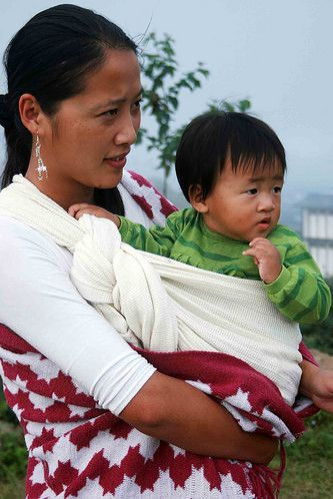Psychologists Say that Pregnancy and Motherhood Boosts Women's Memories

Women have long been teased with the idea of "baby brain," the theory that women, who just have had a baby, seem a bit prone to forgetting. But a study from the Carlos Albizu University in Miami refutes that old belief. Melissa Santiago, a doctoral student, found that women who had recently become mothers had better visuospatial memories – the ability to notice and remember information about a person's surroundings – than women who had never had children.
Previous studies on the matter had been mixed, with some researchers arguing that women's memory function remained the same during pregnancy and motherhood and others arguing that cognitive function severely declined in mice.
Santiago studied data from 35 women who'd had their first child 10 to 24 months ago, and 35 women who'd never had children. Their intelligence tests were similar, and most women were Hispanic.
In order to test visuospatial memory, women were shown a paper with six symbols for 10 seconds. Then they needed to draw what they had seen. The first time women needed to complete the task, all the women performed about equally. They then were shown the paper a second and third time. When they needed to draw the symbols a second or third time, however, the mothers outperformed the woman who had never had children by a wide margin. Those results indicate that mothers retained more information the first time they saw the paper.
Later, women were shown pictures of symbols and asked to remember which symbols had been shown to them earlier. The mothers did not make a single mistake on this exercise, but for the non-mothers, they made two or three.
Physiological changes in the brain do occur during pregnancy. The brain can shrink by as much as 6 percent. After childbirth, however, the brain returns to its normal size and, Santiago theorizes, its circuitry may rewire to create the changes that she had found. In addition, it is beneficial for mothers to have a better visuospatial memory to keep an eye on what their children are doing.
Santiago admits that the study was limited by its small sample size, and its rather homogeneous ethnic group. However, it is consistent with some previous research.
In reality, what most associate with "baby brain" is in all likelihood just what happens when a person is getting much less sleep than they need.
Santiago will be presenting her findings at the American Psychiatric Association's annual convention.



























